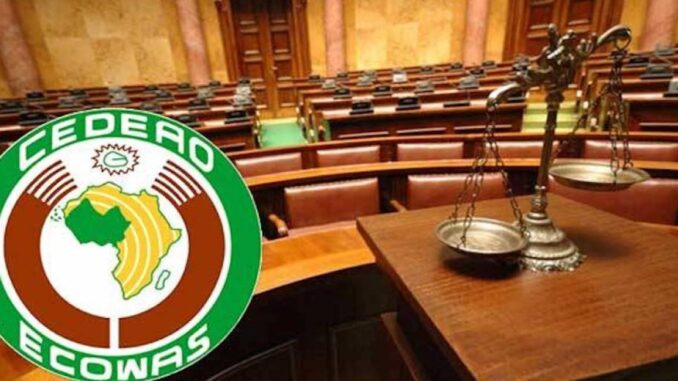
In a statement issued by the state Commissioner for Information and Internal Affairs, Ibrahim Garba Waiya, the government maintained that it will not bow to external pressures and will continue to enforce laws that align with the beliefs of its predominantly Muslim population.
The Kano State Government has rejected a recent ruling by the ECOWAS Court of Justice that declared aspects of its blasphemy laws incompatible with international human rights standards, insisting that such laws remain vital to protecting its citizens’ religious and moral values.
In a statement issued by the state Commissioner for Information and Internal Affairs, Ibrahim Garba Waiya, the government maintained that it will not bow to external pressures and will continue to enforce laws that align with the beliefs of its predominantly Muslim population.
“We will not be deterred by external pressures. Our responsibility is to uphold the values of our society, which are grounded in religious and moral beliefs. While we respect international opinions, our laws are a reflection of our people’s will,” Waiya said.
The response comes after the ECOWAS Court ruled that the use of blasphemy laws to prosecute individuals for their religious expressions violates international human rights obligations to which Nigeria is a signatory.
The case has reignited national and regional debates about balancing religious freedom, freedom of expression, and cultural or religious norms.
Kano State, one of the northern Nigerian states practising Islamic Sharia law alongside the country’s secular legal system, argues that the court’s decision undermines Nigeria’s federal structure.
“The Kano government’s defence is rooted in Nigeria’s federal system, where states retain the right to enact laws reflecting local social, moral, and religious contexts,” Waiya added.
“The people of Kano have entrusted us with the responsibility to maintain peace and protect their religious values. These laws are central to that mission, and they will remain firmly in place.”
While acknowledging the authority of the ECOWAS Court, the Kano government insists its blasphemy laws are legally grounded and socially necessary.
“We fully respect the court’s authority, but the laws that govern our state must reflect the unique moral and religious fabric of our people,” Waiya stated.
Human rights advocates have urged the Nigerian government to comply with the ECOWAS ruling, warning that state laws contradicting international treaties could expose the country to sanctions or reputational damage.
SaharaReporters had reported that the ECOWAS Community Court of Justice delivered a landmark judgment declaring Kano State’s blasphemy laws unconstitutional under international human rights standards, ordering the Nigerian government to repeal or amend the provisions.
In a suit filed by the Incorporated Trustees of Expression Now Human Rights Initiative, marked ECW/CCJ/APP/41/23, the court found that specific sections of Kano’s Penal and Sharia Penal Codes violate the right to freedom of expression as protected by regional and international treaties.
The court ruled that Section 210 of the Kano State Penal Code and Section 382(b) of the Kano State Sharia Penal Code Law (2000) are incompatible with Article 9(2) of the African Charter on Human and Peoples’ Rights and Article 19 of the International Covenant on Civil and Political Rights.
A three-member judicial panel — comprising Justice Ricardo Gonçalves (President), Justice Sengu Koroma, and Justice Dupe Atoki — delivered the unanimous ruling on Friday.
The judgment comes amid growing concerns over the use of blasphemy laws to suppress dissent and target religious minorities.
The human rights group argued that these laws have led to arbitrary arrests, prolonged detention, and death sentences while also fuelling vigilante violence and mob justice.
The ruling now pressures the Nigerian government to ensure compliance by amending or repealing the offending laws to align with its international human rights obligations.
While the Court acknowledged the state’s interest in maintaining public order and respecting religious sensibilities, it noted that such interests must be balanced against individuals’ fundamental rights—a balance Kano’s laws failed to achieve.
The Court, however, did not find sufficient evidence to support allegations that the Nigerian state had failed to prevent mob violence related to blasphemy accusations, stating that media reports alone did not meet the legal threshold of proof.
The Court ordered the Nigerian government to repeal or amend the relevant provisions and similar laws to align with international legal standards
Leave a Reply